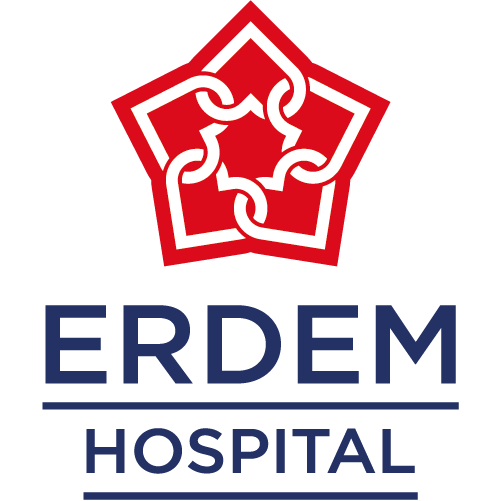Intravenous (IV) treatments are medical procedures in which fluids, medications, or nutrients are administered directly into a patient’s vein. This method is highly effective for rapid absorption and is commonly used in hospital settings, outpatient clinics, and emergency care. IV therapy is an essential component of modern medicine, ensuring that patients receive essential fluids, electrolytes, and medications in a timely and controlled manner.
Common Uses of IV Treatments
IV therapy serves various medical purposes, including:
1. Fluid Replacement and Hydration Therapy
- Used to treat dehydration due to illness, excessive sweating, vomiting, diarrhea, or post-surgical recovery.
- Common in athletes, elderly patients, and those suffering from chronic conditions causing fluid loss.
2. Medication Administration
- Ensures precise and controlled delivery of antibiotics, pain relievers, chemotherapy drugs, and other essential medications.
- Used when oral medications are ineffective or when rapid drug action is necessary (e.g., in cases of sepsis, severe infections, or acute pain management).
3. Electrolyte and Nutrient Infusion
- Given to patients with deficiencies in key electrolytes like sodium, potassium, and magnesium.
- Essential for individuals suffering from malnutrition, digestive disorders, or post-operative recovery.
4. Blood Transfusions
- A critical IV therapy used in treating anemia, blood loss, and certain medical conditions such as sickle cell disease or leukemia.
- Ensures safe and controlled infusion of donor blood components.
5. Parenteral Nutrition
- Used for patients unable to consume food orally due to gastrointestinal disorders, post-surgical complications, or severe illnesses.
- Provides a balanced mix of essential nutrients, proteins, carbohydrates, and fats.
6. IV Therapy for Chronic Conditions
- Patients with conditions like cancer, autoimmune disorders, and kidney disease may require regular IV treatments.
- Immunoglobulin (IVIG) therapy is commonly used for immune deficiencies and autoimmune conditions.
7. Emergency and Critical Care IV Therapy
- Vital in treating patients suffering from shock, trauma, poisoning, or severe allergic reactions (anaphylaxis).
- Epinephrine, steroids, and emergency fluids are often administered intravenously.
Benefits of IV Therapy
1. Faster Absorption and Immediate Effects
- Bypasses the digestive system, ensuring direct entry into the bloodstream for rapid relief.
2. Precise Dosage Control
- Allows healthcare professionals to administer medications and fluids in accurate dosages tailored to individual patient needs.
3. Effective for Patients Unable to Take Oral Medications
- Ideal for those experiencing nausea, vomiting, unconsciousness, or severe gastrointestinal issues.
4. Hydration and Nutrient Replenishment
- Helps restore balance in patients suffering from malnutrition, dehydration, or electrolyte imbalances.
5. Treatment for Chronic and Acute Conditions
- IV therapy provides an ongoing treatment solution for long-term conditions while also being a crucial intervention for emergency cases.
Frequently Asked Questions (FAQs)
1. Is IV therapy safe?
Yes, when administered by trained healthcare professionals, IV therapy is generally safe. However, risks such as infection, vein irritation, or allergic reactions are possible but rare with proper medical supervision.
2. How long does an IV treatment session last?
The duration varies based on the treatment type. Hydration therapy may take 30-60 minutes, while medication infusions can last several hours.
3. Does IV therapy hurt?
Patients may feel a slight pinch when the needle is inserted, but discomfort is minimal. A trained nurse or doctor ensures the procedure is as painless as possible.
4. Are there side effects of IV therapy?
Mild side effects like bruising, swelling at the injection site, or dizziness can occur. Serious complications such as infections are rare but possible.
5. Can anyone receive IV therapy?
IV therapy is safe for most individuals but should be administered under medical supervision, especially for those with kidney disease, heart conditions, or allergies to certain IV components.
6. Can IV therapy boost the immune system?
Certain IV treatments containing vitamins C, D, and zinc are believed to support the immune system, but their effectiveness varies based on individual health conditions.
7. How often can I receive IV therapy?
The frequency depends on the purpose of treatment. Some chronic conditions require regular IV therapy, while hydration or nutrient-based treatments may be done as needed.
8. What should I do before an IV treatment?
Patients should drink water, eat a light meal if possible, and inform their healthcare provider about any allergies or medical conditions before undergoing IV therapy.
IV treatments are an essential component of modern medicine, providing rapid and effective administration of fluids, nutrients, and medications. At Erdem Hospital, we prioritize patient safety and precision in IV therapy to ensure the best possible outcomes. If you have questions about IV treatments or need professional medical guidance, consult our experts for personalized care.
